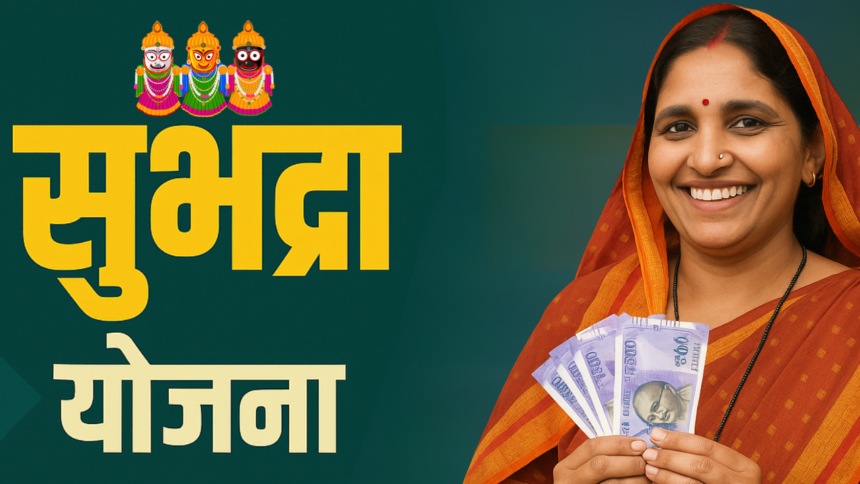The Subhadra Yojana is an ambitious welfare scheme proposed by the Odisha government aimed at empowering women through direct financial support. Announced by the Biju Janata Dal (BJD) ahead of the 2024 Assembly elections, the scheme is centered around providing an annual cash benefit to women, helping them achieve economic independence and improved quality of life. With the promise of ₹50,000 over two years, the initiative is seen as a game-changer in the political and social landscape of Odisha, especially for women belonging to economically weaker sections.
Objective of Subhadra Yojana
The primary objective of the Subhadra Yojana is to enhance the financial autonomy of women and support them in their personal and family needs. In a state where many households rely on a single income or suffer from economic hardship, this scheme aims to act as a safety net and an empowerment tool. It seeks to:
-
Provide financial assistance directly to women.
-
Encourage household savings and better financial planning.
-
Improve the status of women within the family and community.
-
Reduce dependence on informal loans or exploitative credit systems.
Key Features of Subhadra Yojana
-
Direct Cash Transfer: Under this scheme, eligible women will receive ₹50,000 in cash assistance over a period of two years. This amounts to ₹25,000 per year, which can be used for any purpose, including education, healthcare, small business, or household needs.
-
Target Group: The scheme targets married women, particularly those from low-income households in Odisha. The focus is on women who play a crucial role in managing family finances and raising children, but often lack independent income sources.
-
Voluntary and Optional: Unlike some other schemes which come with rigid rules or conditions, the Subhadra Yojana gives complete flexibility to beneficiaries on how they want to utilize the money. It is designed to respect the agency of women and trust their decisions.
-
Application Process: Beneficiaries are expected to be identified and enrolled through a simplified application process. Eligible women will receive a coupon or card that can be submitted for registration at local government offices or digitally through the scheme’s official portal.
-
Political Backing: The scheme was announced by BJD leader and Chief Minister Naveen Patnaik in April 2024, ahead of the state assembly elections. It is a flagship social welfare program that aligns with BJD’s pro-women image and governance model.
Impact on Women and Society
If implemented effectively, the Subhadra Yojana has the potential to bring significant changes in Odisha’s socio-economic fabric:
-
Economic Empowerment: Direct cash transfers help reduce gender disparities in access to resources. Women who have control over money are more likely to invest in education, healthcare, and nutrition for their children.
-
Social Dignity: Financial assistance enhances the social standing of women in patriarchal societies where they often depend on male members for money. The scheme gives them bargaining power and respect within the family.
-
Rural Development: In Odisha, where a large portion of the population resides in rural areas, the scheme can stimulate local economies by increasing purchasing power and demand for goods and services.
-
Reduced Debt Dependence: Women in poor households often take high-interest loans from moneylenders during emergencies. Subhadra Yojana can serve as a cushion and reduce their reliance on such harmful financial practices.
Political and Public Reception
The Subhadra Yojana has garnered widespread attention both within and outside Odisha. While it has been lauded as a progressive and inclusive move, some critics argue that it could be an election gimmick aimed at securing votes from women voters. However, the BJD maintains that the scheme is part of its long-standing commitment to women’s empowerment, building on past initiatives like Mission Shakti.
Women’s groups, SHGs (Self Help Groups), and civil society organizations have largely welcomed the scheme, stating that it addresses a real need and gives agency to women to manage their own finances.
Conclusion
The Subhadra Yojana is a promising initiative that reflects a growing recognition of the need to empower women through direct financial support. With its focus on trust, flexibility, and inclusiveness, the scheme has the potential to not only uplift individual households but also transform communities across Odisha. Its success, however, will depend on effective implementation, transparency, and accountability.
As Odisha leads the way with such people-centric policies, the Subhadra Yojana may well become a model for other Indian states to follow in the journey toward gender justice and economic empowerment.





